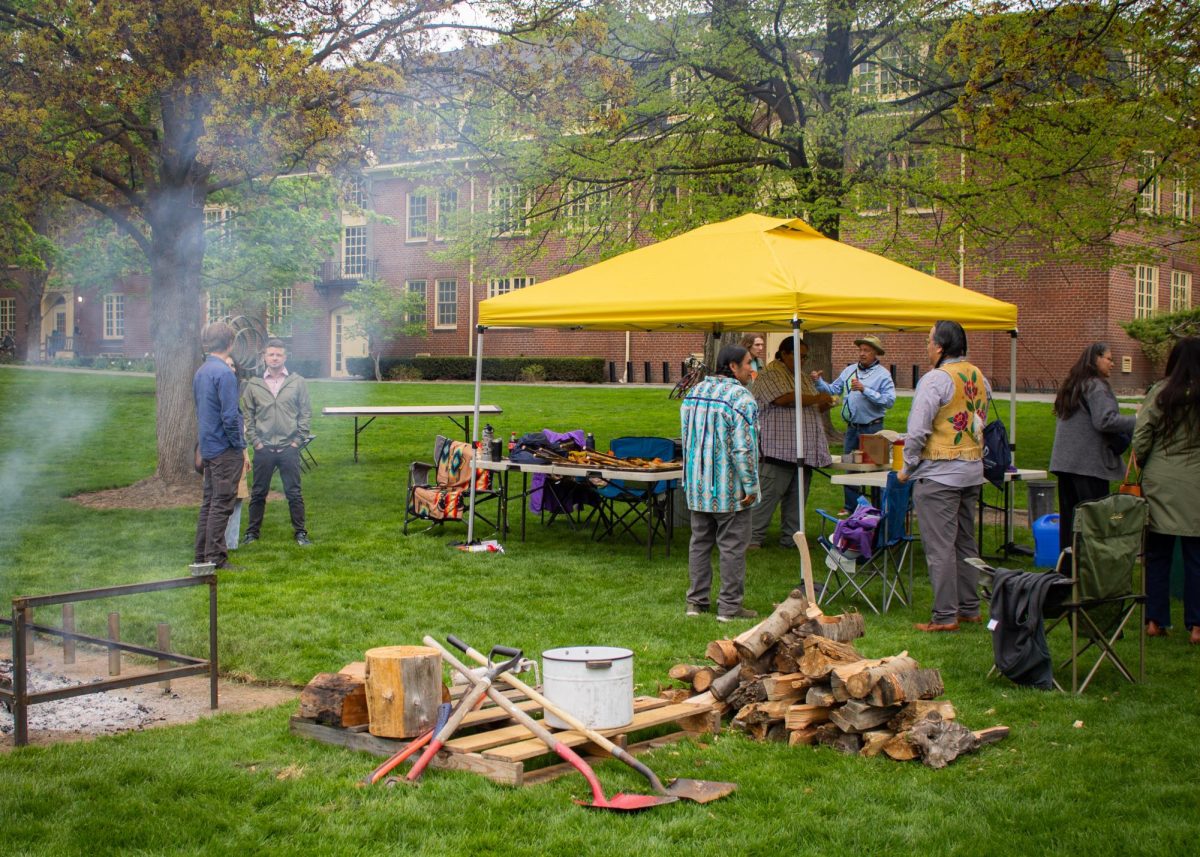by Danielle Alvarado
The weekend before Thanksgiving will mark the 16th year human rights activists have converged at Fort Benning in opposition to the continued operation of the Army’s School of the Americas.
In 1996 the Pentagon released the school’s training manuals, which included torture techniques and encouraged interrogators to ‘get creative’ with documents like the Geneva Convention. Now, as the United States’ commitment to human rights is again being called into question, the Pentagon should do itself a favor and close the school.
If you’re looking for some reassurance that the reports of torture in Iraq and Guantanamo Bay are aberrations to U.S. military protocol, take a trip to Fort Benning in Columbus, Georgia. There you’ll find Maryknoll priest Roy Bourgeois who will have no problem rattling off the names of a few other aberrations. Roberto D’Aubuisson, the head of El Salvador’s Death Squad who ordered the Archbishop Oscar Romero’s assassination; former dictator of Panama Manuel Noreiga; the soldiers who abducted, raped, and dismembered four nuns in 1980; and former Argentine military junta leader Leopoldo Galtierri.
The U.S. Army trained all these ‘bad apples,’ some of the most heinous abusers of human rights in the region, at the School of the Americas. Established in Panama in 1946, it relocated to Fort Benning after being called the “biggest base for destabilization in Latin America.”
In 1992, then Secretary of Defense Donald Rumsfeld received a confidential memo listing two dozen ‘improper’ passages in the SOA training manuals. When the Pentagon was forced to release the manuals in September 1996, it confirmed the claims of SOA opponents: atrocities committed by SOA graduates against their countrymen were the result of their Fort Benning training, not in spite of it.
The manuals were filled with tactics which violated basic human rights: arrest of a detainee’s family members, ‘truth serum’ injection, strategies for keeping a detainee alive during torture, and the use of extortion, coercion, and ‘neutralization.’
In the decade since the manuals were released the Pentagon has done nothing to investigate abuses committed by its former students as a result of its training. Instead, they have focused their efforts on a public relations campaign to diffuse support for the growing grassroots movement to close the school.
In 2001 the name was changed to the Western Hemispheric Institute for Security Cooperation and an oversight board that reports only to Rumsfeld was established. Unfortunately for SOA/WHINSEC supporters, it did not take long for their graduates to make the news after the name change. In 2002 two graduates lead a failed coup attempt in Venezuela; in 2005 the Colombian Army 17th Brigade, whose commander is an SOA/WHINSEC alumnus, massacred eight members of a peace community.
As they have done every year for the past two decades, the school’s opponents will gather at the gates of Fort Benning this November to both protest its continued operation and to hold a vigil for the victims of its graduates. SOA Watch, founded in 1990 to work year round to close the school, convened an estimated 19,000 people last year.
The vigil will culminate in the deliberate crossing onto the base by individuals who know that such an action will bring a minimum three-month sentence in a federal penitentiary. Two hundred and eleven prisoners of conscience have served nearly a cumulative century in jail terms; they include Fr. Louis Vitale, 73, Georgetown student Donte Smith, and Salem, Oregon native Chani Geigler.
The list of reasons why the school should be closed is no short one. As countries join Venezuela, Argentina, and Uruguay and refuse to let their military receive U.S. training, the school’s purported region-wide influence fades.
At a time when U.S. soldiers lack critical funding, it becomes harder to justify the continued fiscal support of a program that only serves foreign personnel. And continuing to operate a facility proven to have taught torture methods does not exactly make the case that we do not support such tactics today.
Ironically, it is its relevance that is the most compelling reason for its closure. The SOA/WHINSEC is not at all an outdated relic of the Cold War; in fact, it is exactly the type of institution that our foreign policy depends on today. The current administration maintains the worldview, leadership, and willingness to look the other way when it comes to human rights embodied by the SOA.
Even if we believe that the abuses of the SOA/WHINSEC are the exceptions and not the rule, it remains difficult to understand why the Army continues to use a facility popularly recognized throughout Latin America as a training camp for dictators and murderers: indeed, for terrorists.
If the United States is sincere in its commitment to the spread of democracy, justice, and cooperation among nations, it can no longer afford to associate with institutions like the SOA/WHINSEC. To suspend operations and permit an independent investigation would be an important first step.









Jonathan Karpf • Oct 28, 2006 at 10:35 am
Kudos to Jennifer Alvarado for such a well written and well argued article. I offer only one minor correction and a few additions: the Salvadoran soldiers trained at the S.O.A raped and killed 3 – not 4 – nuns; the fourth was an American lay Catholic worker. Then in 1989, Salvadoran S.O.A. graduates killed 6 Jesuit priests as well as their housekeeper and her teen age daughter, while in another incident in 1989 S.O.A. graduates raped, tortured, and killed a French nurse working with the poor in El Slavador. Don’t even get me started on the mayhem wrought in Guatemala due to S.O.A. trained military. That’s our tax dollars at work folks; any wonder that the U.S. doesn’t have many friends around the world?
Thank you Jennifer for speaking truth to power.